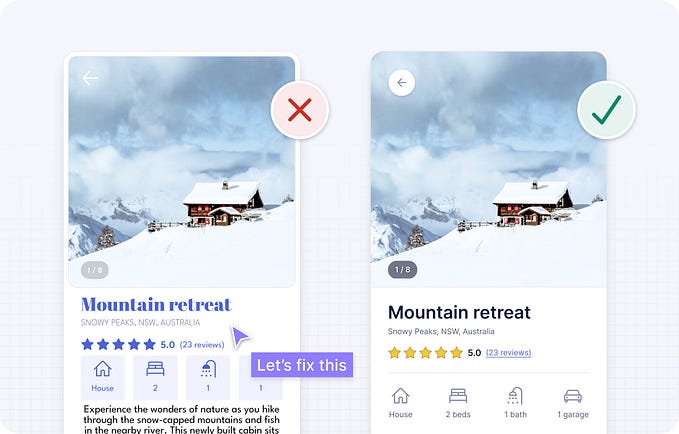
The best UX designers constantly do this to level up faster than their peers
Ironically, it comes from studying your peers!
The designers who accelerate their abilities the quickest are the ones who will, given the same amount of time, become the most skilled designers.
So the question is — how do you accelerate faster than others?
There are only really two ways to learn — from your own experiences or from others. While the former is obviously useful, let’s quickly talk about the latter. I’ve been told this many times before, but I genuinely believe it’s true — you learn more from your peers than your manager (if you pay attention to your peers anyway).
So how can you maximize the learning you get from peers? Here’s a simple mental trick that I use to learn from others during meetings & interactions.
Whenever you hear someone suggest a really great idea, make a really sound argument, or say something brilliant that you wish you said — reverse engineer it so next time you can be the one to suggest it.
What does this mean and how can you actually do it?
Pitching designs? Giving feedback? Try my free screen recorder that lets you rewind and re-record your mistakes so you never have to restart from scratch. Check it out here.
How to reverse engineer peer feedback
What not to do
On the one hand, you could listen to your peers and when someone suggests something amazing, take it at face value and re-use it next time. For example, a peer says “I think you’re missing the case where this Airbnb traveler doesn’t have a passport”. Your takeaway then becomes “always consider people who don’t have passports”. You’ve missed the point!

The problem with this is that you don’t improve your own ability to catch what your peer caught and you’re leaving a ton of learning on the table.
Like an apprentice who follows a teacher, if you follow everything that the teacher does you will only ever be as good as that teacher — and that’s not good enough for us! Plus — you won’t be able to apply the same underlying learning to other contexts. If your takeaway is “always consider people without passports”, that won’t translate well in other circumstances.
But — if you understand how the teacher developed their skills and gained their knowledge, you can replicate that and potentially surpass whatever ceiling they’ve reached as well.
What to do instead
It starts with asking the right questions. Whenever someone gives for example a fantastic piece of feedback, start by asking questions like:
- How could I have come up with that?
- What knowledge would I have to have?
- What experience would I need to acquire?
- What process would I have to put in place?
- Given my answers to the above, how could I broaden the learnings & principles to apply elsewhere?
Gradually but surely, peel back those layers until you have a nugget of actionable next steps that you can then implement into your own process.

Let’s illustrate.
You’re in a design critique, and Bob suggests we use a modal/popup to warn users that if they try to pay with Paypal they will be ineligible for the store’s promotion.
Jane throws a counterargument.
Instead of popping a modal for all users for something only a few of them will actually do (pay with Paypal), why don’t we only show the modal to people who click the “pay with Paypal” button? That way, the 90% of users who were never going to pay with Paypal anyway don’t have to get an annoying popup, while those who were going to will get the appropriate message.
Wow, great point!
The easy lesson here would just be to say “oh ok, so the next time I want to use a modal I should think about how many people actually need to see it.”
That’s like finding a gold mine and moving on once you’ve mined your first ounce.

Instead, ask some of the questions I mentioned above. How could I have come up with that? What processes would I have to put in place?
Well, perhaps if I had more knowledge of our data and how many people actually pay with Paypal I may have caught this. To go further, I could make sure I think through how many people will see anything I design and balance that with how many people need to see anything I design.
Some actionable next steps could then be:
- Make sure before I join a critique to always familiarize myself with user behavior data
- Make a checklist for myself so that anytime I propose a design I think through the frequency with which this design will be seen and how relevant it is given those frequencies.
Most of the time, 50–80% of what you learn in a podcast, article, or book may not actually be that relevant in your day-to-day job. But if you reverse engineer great thoughts from your peers at work — you will use those learnings again and again for as long as you perform your job function.
I’ve trained senior product designers at Apple & Meta. Join me for weekly product design insights on Substack!
During this tough job market I’m also answering career questions/portfolio reviews (as many as I can anyway) — as long as you’re ok with me sharing the answers with my substack community, email me at ch.kr.lee@gmail.com!








